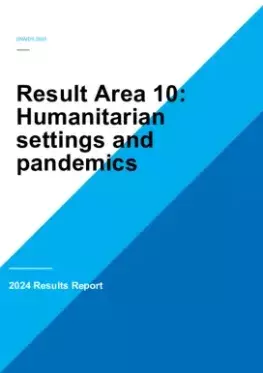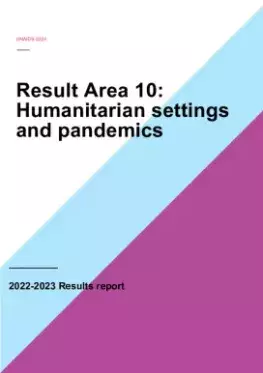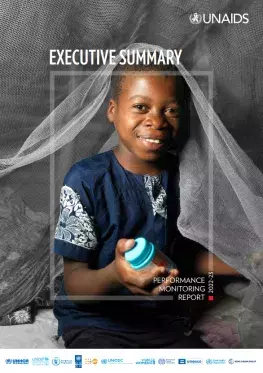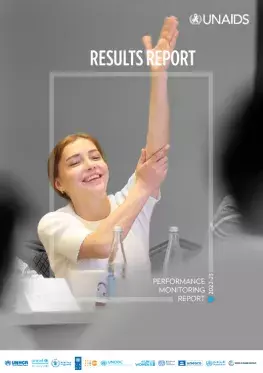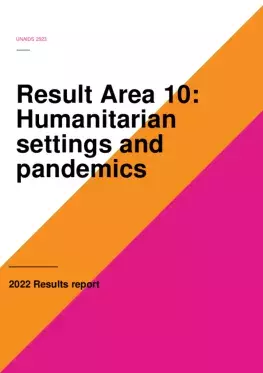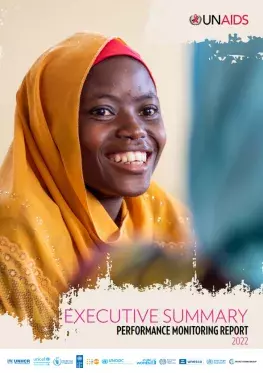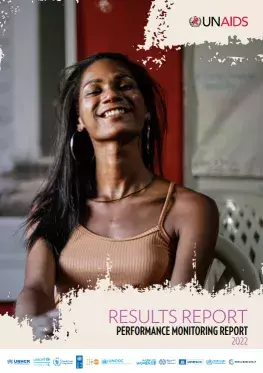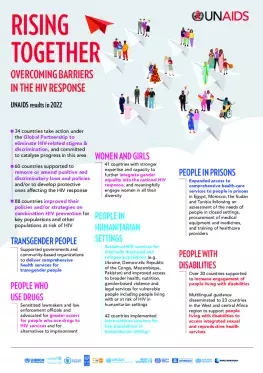Reducing inequalities demands focused efforts to meet the needs of people who are most vulnerable and underserved, recognizing that people living with HIV and key populations in emergency and humanitarian settings are highly vulnerable to the socioeconomic impact of emergencies. They typically are least protected by national social safety nets and often experience multilayered inequalities which heighten their vulnerability. The Strategy calls for equal access to HIV services for people living with and affected by HIV in humanitarian emergencies (including refugees and internally displaced persons) and for ensuring that their health, food, nutrition, shelter and water basic needs are covered in humanitarian responses.
Humanitarian Settings and Pandemics
Given the increase in frequency and magnitude of various wars, conflicts, humanitarian disasters and other shocks, in 2024, the Inter-Agency Task Team on HIV in emergencies was jointly reconstituted by UNHCR, WFP and the Secretariat. It brings together over 30 organizations, including UN agencies, civil society entities and technical and financial partners. The Team was instrumental in initiating the update of the Inter-Agency Standing Committee (IASC) guidelines for addressing HIV in humanitarian settings. A catalogue of recommendations on HIV in humanitarian settings is available. It emphasizes the importance of addressing HIV vulnerabilities in crises and collecting and using data and evidence for stronger advocacy.
The Joint Programme intensified its efforts to ensure that people living with or at risk of HIV are systematically identified and supported to meet their essential needs within emergency preparedness and response programming. Furthermore, it helped mitigate the impact of humanitarian crises and natural disasters to protect progress in the HIV response and ensure continued access to essential HIV services and rights protection. With WFP support, people living with HIV in emergency settings benefited from food security and nutrition. UNHCR collaborated with governments, hosting communities and humanitarian partners to improve access to HIV testing, treatment, care and support in refugee operations. UNFPA contributed to HIV prevention and treatment in humanitarian settings by guiding and supporting implementation of the Minimum Initial Service Package for sexual and reproductive health in Crisis Situations. The package includes post-rape care ; the provision of condoms, standard precautions supplies, safe blood transfusion materials, prophylaxis for opportunistic infections, sexually transmitted infections’ treatments and more.
In 2024, following the declaration of the mpox outbreak as a Public Health Emergency of Continental Security by the Africa Centres for Disease Control and Prevention (CDC) and classification of the virus by WHO as a "public health emergency of international concern", the Joint Programme called for a rapid and rights-based international response to mpox and equitable access to vaccines and treatments, emphasizing the crucial role of involving communities in every stage of the response.
The Joint Programme emphasized the importance of protecting the gains of HIV response and encouraged Member States to use their HIV experience to help prevent and respond to future pandemics and health emergencies. Additionally, it visibly promoted and advocated for action to fully leverage lessons learned from the HIV response in the development of the landmark UN General Assembly’s Political Declaration on Pandemics Prevention, Preparedness and Response and negotiation of new WHO-led Accord Pandemics Prevention, Preparedness and Response Accord, as well as the targeted revision of the International Health Regulations.


